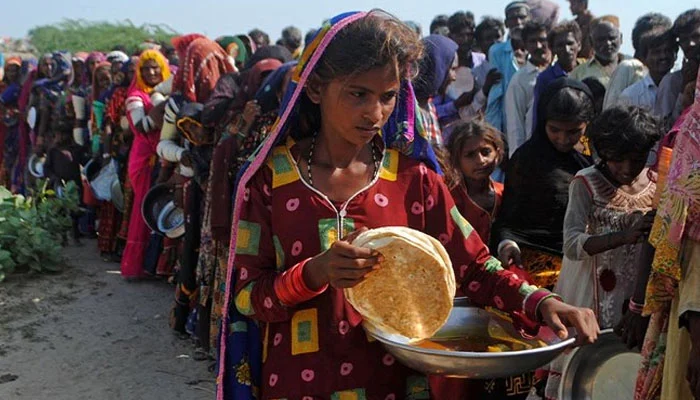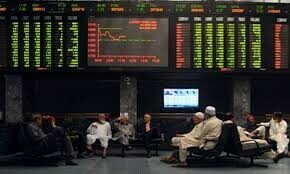The 21st century has witnessed the emergence of a formidable alliance known as BRICS, comprising the nations of Brazil, Russia, India, China, and South Africa. This coalition, which derives its name from the initials of its member states, has evolved into a significant force in the global economic landscape. In 2023, the BRICS economies collectively eclipsed the combined contribution of the G7 nations to global GDP, underscoring their growing influence and potential. However, their ambition doesn’t stop at economic prowess; the BRICS nations are challenging the status quo of Western dominance and the supremacy of the US Dollar, signaling a new chapter in global economic dynamics.
The rise of the BRICS alliance marks a transformative shift in global economic dynamics. These five nations, spanning different continents and diverse cultures, have come together with the shared goal of reshaping the international order. This year’s milestone achievement of overtaking the G7’s contribution to global GDP highlights the rapid growth of these economies. The BRICS bloc now accounts for almost a third of worldwide economic activity, a remarkable feat considering the economic stagnation experienced by many Western countries.
This shift in economic power has not gone unnoticed. The BRICS alliance has not only demonstrated its capacity for rapid growth but has also paved the way for new narratives in global financial governance.
One of the most significant aspirations of the BRICS nations is to reduce their dependence on the US Dollar as the world’s primary reserve currency. The current international monetary system, established after the collapse of the Bretton Woods Agreement in 1971, has given the US Dollar a central role in global trade and finance. This privileged status affords the United States substantial influence over international economic affairs.
In response, the BRICS countries have explored the idea of creating their own global reserve currency, challenging the long-standing dominance of the US Dollar. This ambitious proposition, if realized, could reshape the financial landscape, reduce vulnerabilities to the fluctuations of the Dollar, and enhance the economic sovereignty of these nations.
The BRICS alliance brings together nations with distinct political systems, cultures, and histories. The diversity among its members is a double-edged sword. While it enriches the alliance with different perspectives and expertise, it also presents challenges that need careful navigation. Geopolitical tensions, especially those involving Russia and China, have at times strained the unity of the BRICS nations.
For instance, the question of Russian President Vladimir Putin’s participation in the upcoming summit in South Africa underscores the complexities the alliance faces. These challenges, however, do not overshadow the potential that the BRICS nations collectively hold.
A core aim of the BRICS alliance is to influence global political and economic structures in ways that better serve their interests. This commitment is demonstrated through initiatives such as the BRICS Parliamentarian Forum and Outreach Dialogue, which facilitate engagement with neighboring regions and other interested countries. South Africa, for instance, leverages the BRICS platform to advance its foreign policy priorities, including the African Agenda and South-South Cooperation.
The alliance has further solidified economic relationships among member states through institutions like the BRICS Business Council, the Contingent Reserve Agreement (CRA), and the New Development Bank (NDB). The NDB, headquartered in Shanghai, plays a pivotal role in mobilizing resources for sustainable development projects and infrastructure within BRICS nations. The CRA enhances financial stability by providing short-term liquidity support to member countries during balance-of-payment crises.
While the BRICS nations celebrate their achievements, they are not immune to challenges. Internal political and economic instability, disagreements over UN Security Council reform, and territorial disputes between India and China present significant obstacles to continued cooperation and growth. External factors, such as China’s economic slowdown and declining foreign investment, have also cast shadows over their progress.
Critics argue that these challenges could signal a plateau in the BRICS’ trajectory. However, the member countries are determined to overcome these hurdles and demonstrate the resilience and potential of their alliance.
The recent invitation extended to Iran, Saudi Arabia, the United Arab Emirates, Argentina, Egypt, and Ethiopia to join the BRICS bloc marks a pivotal moment. This expansion carries the potential to amplify the influence and economic significance of the alliance. The inclusion of major oil producers like Saudi Arabia, the UAE, and Iran underscores their commitment to shaping the global economic landscape.
However, uncertainties persist. While Saudi Arabia’s reaction to the invitation remains cautious, Iran’s reception of it as a strategic victory reflects the geopolitical implications of the alliance’s expansion.
The upcoming 15th BRICS summit, scheduled to take place in South Africa, is poised to address critical issues that challenge the existing global order. De-dollarization, which seeks to diminish the dominance of the US Dollar, stands at the forefront of discussions. Furthermore, deliberations on expanding the alliance to include new members signify the BRICS’ commitment to strengthening their influence and reach.
The BRICS alliance collectively represents over 40% of the world’s population and approximately 26% of the global economy. While the G7 and G20 still exert considerable influence, the BRICS serve as a counterbalance by advocating for a more equitable world order and the reform of international institutions.
As the BRICS alliance convenes its 15th summit, the world witnesses a turning point in global economic dynamics. The alliance’s expansion, de-dollarization efforts, and commitment to reshaping global financial structures reflect a determination to challenge Western dominance. While internal and external challenges persist, the BRICS nations remain steadfast in their ambition to redefine the balance of power on the global stage.
The path ahead for the BRICS is complex and multifaceted. Their success will be measured not only by economic growth but by their ability to forge a new global narrative that accommodates the interests and aspirations of emerging economies and the developing world. As the BRICS navigate this transformative journey, they carry the potential to reshape the contours of global power and influence, leaving an indelible mark on the 21st-century international order.
Sania Arif
- This author does not have any more posts.






